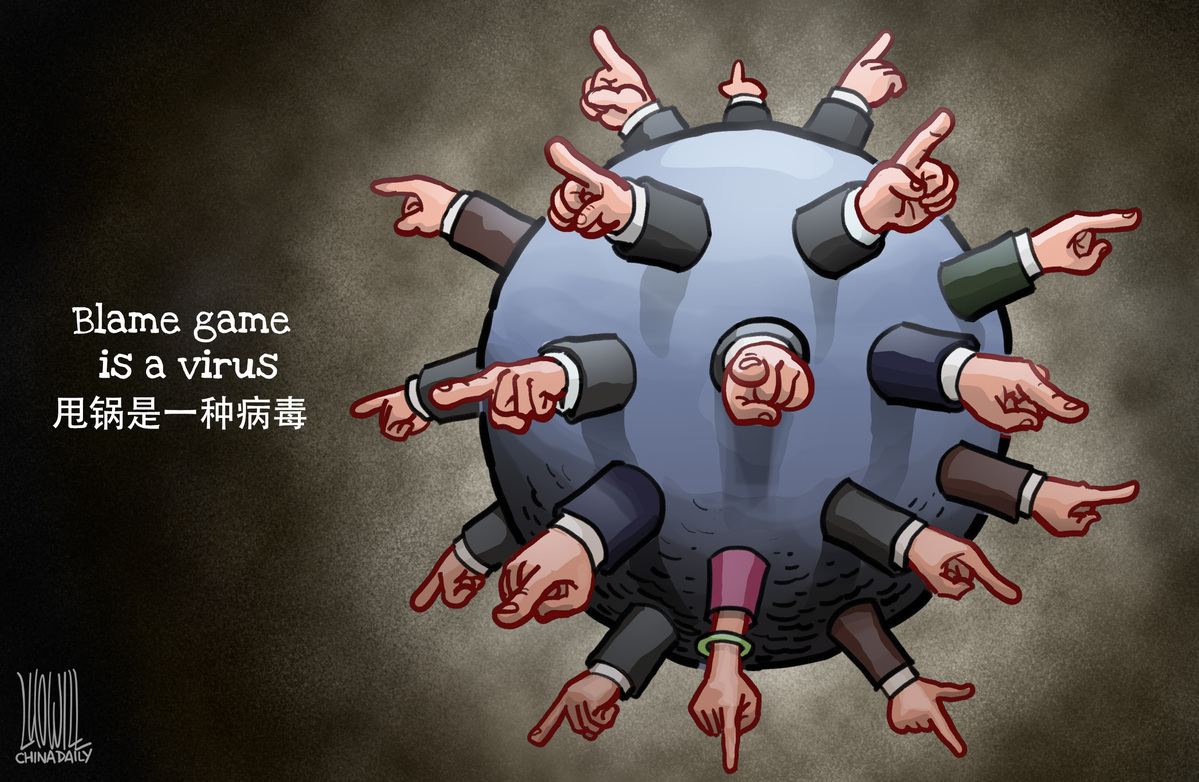Anti-China hawks risk isolating Britain


As the COVID-19 pandemic has gathered pace in the United Kingdom, it has come with increasing calls from some individuals and media outlets situated on the political right to pursue a politics of blame and retaliation against China over the outbreak.
Starting with an editorial in The Mail on Sunday two weeks ago, officials in the Conservative Party including former Party leader Ian Duncan Smith, called for a "reckoning" against China and demanded the UK "re-think" its relationship with Beijing. The paper falsely claimed that China's case numbers were 40 times higher than reported, and whipped up racist imagery of animal markets, which was in fact taken in Vietnam, to further vilify the country.
The succeeding week, the newspaper proceeded to whip up a figure from the Neoconservative Think Tank the Henry Jackson Society, stating that "China owes Britain £351 billion". In the meanwhile, these anti-China individuals including also parliamentary select committee on Foreign Affairs Leader Tom Tugenhadt, have been appearing more prominently in a variety of right wing outlets also making this call.
The same political faction within the Conservative Party sought to ban Huawei's participation in Britain's 5G network back in January and rebel against Prime Minister Boris Johnson's government. With the UK government having typically pursued good relations with Beijing, this faction is now weaponizing the crisis to push its agenda into the mainstream.
For the British government to keel this pressure would be a strategic mistake. The scenario of Brexit has placed the country into a position of strategic weakness and economic fragility. For 2020, even before the coronavirus recession emerged, the UK's projected GDP growth was a mere 1.1 percent. Thus expanding the country's commercial and trading relationships has been vital to sustaining Britain's continued prosperity in the light of Brexit.
This has been a core motivation for Boris Johnson. Although currently hospitalized, the former London mayor has been aware of the prevailing realities and has long placed strong emphasis on sustaining positive economic ties with China recognizing the benefits to Britain. Even when the United States placed relentless pressure on London to ban Huawei from participating in its 5G networks, the government knew the US demand was not in Britain's national interest.
The party's right wing politicians however, want to seek a closer relationship with the United States based on the nostalgia of British Imperialism and Anglo-Protestant exceptionalism. These individuals, who were also the most staunch supporters of Brexit, see the strategic shift as an opportunity to hasten relations with Washington and pursue a "Neo-Britannia" outlook which sees Britain "not bound to Europe" as they would say but more forcefully crusading for its values throughout the world. As former defence secretary Gavin Williamson once touted he wished to project "British hard power" and take on China in the South China Sea.

However, these judgements are extremely unrealistic, built upon idealism and hubris than practical strategic assessments:
First of all, Britannia does not rule the waves anymore. Britain's size in relation to the rest of the world economy is shrinking annually and has been accelerated by the currency crunch produced by Brexit. In the past four years alone, its GDP has shrunk behind that of France and India. China's economy for one is now five times the size of Britain's.
The nostalgic lull of Britain's position as a great power is extremely misleading. Isolating Britain from both Europe and China will be disastrous, London does not hold the cards it thinks it has.
Secondly of course, the US is not a reliable alternative. Under the unilateral whims of "America First" the US is not interested in what it can give to Britain, but what it can take from Britain. The US administration has already placed tariffs on a plethora of British products as part of the assault against Europe as a whole. A trade agreement would be overwhelmingly one sided with American demands to carve open crucial sectors such as pharmacy and healthcare to US corporations, cutting into Britain's NHS which is certainly against the long term interests of ordinary people.
In this case, the Conservative right (as it was with Brexit) are pushing yet again to force another issue onto the agenda which would have permanent damage for Britain's interests in the world, that is the nonsensical idea that the country should pursue confrontation with Beijing. The £351 billion figure is naivety at best and adept stupidity at its worst.
What this faction must realize is that the days of the British Empire whereby Britain subjugated and tore open China for its own gain are long gone. The country's best interest now waits on securing a positive and stable relationship with Beijing in the view of severe economic weakness inflicted upon it by the departure from the European Union.
The author is a British political analyst, writer and columnist.


































